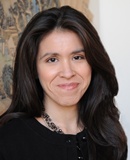Recently, I was invited by our local association of grantmakers to speak with a group of fundraising professionals about how to build strong relationships with donors. The intention was to engage in a discussion about what donors want and expect from grantees, and to allow participants to ask candid questions about this process. The amazing part of this conversation was that the topics covered and questions asked do not seem to have fundamentally changed over the years. The fundraisers wanted advice on how to effectively approach new donors, how to communicate appropriately with them over time, and what steps to take to create a productive donor/grantee relationship.
Eventually, most of the comments from the panel came back to the importance of clear and honest communication. Ironically, the fundraisers were asking these questions not of their own donors, but rather of funders with whom they had no prior relationships (the panel was intentionally designed this way to avoid any conflicts of interest or awkwardness between panellists and participants). But even with this precaution, the participants were very careful with their questions and were hesitant to talk about, for example, what they found most confusing or intimidating about the donor cultivation and stewardship processes.
My experience on this panel prompted questions about the responsibilities of both donors and grantseekers in cultivating a strong relationship, and led me to wonder if those of us in a position to work with donors on their giving practices are doing all we can to create a safe and productive environment in which donors feel equipped to have realistic and (yes) difficult conversations with their grantees.
Compared to the resources for fundraisers, there is a limited selection of services and publications for donors to help them embark upon and engage in giving in a way that goes beyond simply writing cheques. The services that do exist have been found to greatly alter the relationships that donors have with their grantees and alter attitudes towards giving overall. For example, a study of ‘donor socialization’ among participants in Social Venture Partners International (SVPI) – a peer network for philanthropists to learn and give together – conducted by the University of Southern California’s Center on Philanthropy and Public Policy found that members felt more confident and prepared to engage in thoughtful giving as a result of their involvement with SVPI. Consequently, a majority of members reported that not only had they increased their giving since joining, but they had also begun to practise giving in a way that was more engaged and collaborative, with a focus on understanding and supporting grantee infrastructure and performance.
The changes that occur as a result of strong donor education and support are even more relevant when considered in light of the results of a 2006 study conducted by Bank of America in which high net worth philanthropists noted that they would be inclined to give more to non-profit organizations if they:
- were able to become familiar with more NGOs;
- were able to determine the impact of their gifts;
- felt they were getting a better return on investment;
- understood an NGO’s goals better;
- thought grantees were more financially secure;
- could apply their skills when supporting NGOs;
- had more access to research.
In the SVPI study, respondents noted that the most successful learning tool was ‘interactive’ grantmaking. In other words, donors gained the most helpful knowledge and skills from experiences shared with their grantees, such as site visits, volunteering or serving on a committee. The ability to learn from and with grantees helped donors understand the reality of NGO work and this understanding increased their ability to communicate their needs and concerns more effectively.
The economic downturn has actually brought with it an opportunity to reconsider relationships with grantees. As donors are now more concerned with the impact of their investments, the door is open for honest and straightforward conversations about what both donors and grantees are facing financially, and about what expectations each has of the other. Philanthropy advisers should seize the opportunity to help donors hone in on priorities, refine communication practices and reinvigorate conversations centred on how to achieve mutual goals and overcome shared challenges.
Hilda Vega is senior advisor at Strategic Philanthropy, Ltd. Email hilda@stratphilanthropy.com



Comments (0)